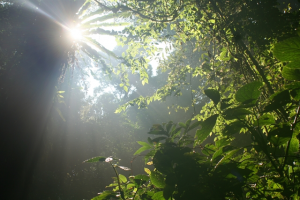 The Yogabliss, Two Rivers/River Tree Yoga on-line Moving into Meditation classes met this morning. What a joy to come together in the spirit of hope. This crisp cold day is still shining with sunlight. It seems to reflect the intention we share in coming to meditate: to work with our hearts and minds so that we can bring our gifts to the world.
The Yogabliss, Two Rivers/River Tree Yoga on-line Moving into Meditation classes met this morning. What a joy to come together in the spirit of hope. This crisp cold day is still shining with sunlight. It seems to reflect the intention we share in coming to meditate: to work with our hearts and minds so that we can bring our gifts to the world.
We started practice with Mary Oliver’s beautiful poem, Sunrise, a celebration of light and our shared humanity.
We explored Vaclav Havel’s writings on hope. Vaclav was an extraordinary human being. He was a Czech statesman, poet, writer and former dissident, who served as the last President of Czechoslovakia from 1989 until the dissolution of Czechoslovakia in 1992 and then as the first President of the Czech Republic from 1993 to 2003. He was imprisoned multiple times for speaking out for human rights. You can find his essay, An Orientation of the Heart, in Paul Loeb’s book, The Impossible Will Take a Little While: A Citizen’s Guide to Hope in a Time of Fear.
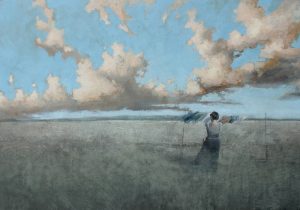 We also reflected on the meditation teacher and author, Oren Jay Sofer’s definition of practical hope. He outlines this in his talk, The Utility of Hope. Oren encourages students to place trust in the truth of present while examining the state of our minds and hearts and the state of the world we inhabit. It sounds easy and it actually takes a lot of work to recognize our bias and conditioning. It takes courage to challenge our own beliefs. It takes commitment to see the world as clearly as we can. That’s where hope – grounded in the truths we can truly know – comes in.
We also reflected on the meditation teacher and author, Oren Jay Sofer’s definition of practical hope. He outlines this in his talk, The Utility of Hope. Oren encourages students to place trust in the truth of present while examining the state of our minds and hearts and the state of the world we inhabit. It sounds easy and it actually takes a lot of work to recognize our bias and conditioning. It takes courage to challenge our own beliefs. It takes commitment to see the world as clearly as we can. That’s where hope – grounded in the truths we can truly know – comes in.
Relaxed Reflexion
Let’s greet the day together with the words of Mary Oliver’s poem:
Sunrise
You can
die for it-
an idea,
or the world. People
have done so,
brilliantly,
letting
their small bodies be bound
to the stake,
creating
an unforgettable
fury of light. But
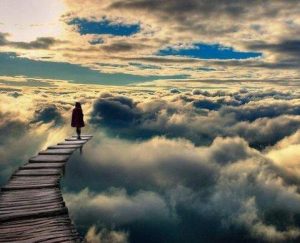 this morning,
this morning,
climbing the familiar hills
in the familiar
fabric of dawn, I thought
of China,
and India
and Europe, and I thought
how the sun
blazes
for everyone just
so joyfully
as it rises
under the lashes
of my own eyes, and I thought
I am so many!
What is my name?
What is the name
of the deep breath I would take
over and over
for all of us? Call it
whatever you want, it is
happiness, it is another one
of the ways to enter
fire.
This morning . . . who or what do we hold in our hearts? Can we sense ourselves bathed in light along with so many who are breathing right now? What is the name of the deep breath we would take over and over for all of us? Right now we can call it whatever we want . . . an aspiration . . . a blessing . . . a hope . . . an intention.
Vaclav Havel, the Czech playwright who turned dissident then became president spoke a lot about hope. Havel was imprisoned multiple times for upholding his ideals of justice and humanism . . . He writes:
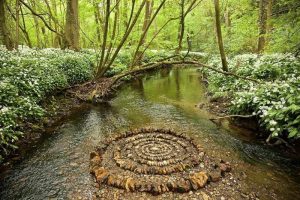 The kind of hope I often think about (especially in situations that are particularly hopeless, such as prison) I understand above all as a state of mind, not a state of the world. Either we have hope within us or we don’t; it is a dimension of the soul; it’s not essentially dependent on some particular observation of the world or estimate of the situation. . . . It is an orientation of the spirit, an orientation of the heart . . .
The kind of hope I often think about (especially in situations that are particularly hopeless, such as prison) I understand above all as a state of mind, not a state of the world. Either we have hope within us or we don’t; it is a dimension of the soul; it’s not essentially dependent on some particular observation of the world or estimate of the situation. . . . It is an orientation of the spirit, an orientation of the heart . . .
Hope, in this deep and powerful sense, is not the same as joy that things are going well, . . . but, rather, an ability to work for something because it is good, not just because it stands a chance to succeed. . . . It is not the conviction that something will turn out well, but the certainty that something makes sense, regardless of how it turns out. . . . It is also this hope, above all, which gives us the strength to live and continually to try new things, even in conditions that seem as hopeless as ours do, here and now.
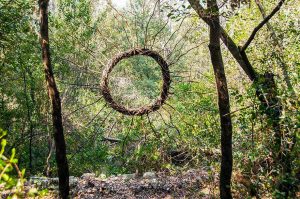 We too have been facing times of near hopelessness. Most of us are grieving some form of loss. We have witnessed suffering here in our country and throughout the world. And yet just bringing ourselves here today is an act of hope. As Vaclav says hope is a state of mind, an orientation of the spirit, an orientation of the heart. It isn’t a fragile hope that some day things will be better and then we will be happy.
We too have been facing times of near hopelessness. Most of us are grieving some form of loss. We have witnessed suffering here in our country and throughout the world. And yet just bringing ourselves here today is an act of hope. As Vaclav says hope is a state of mind, an orientation of the spirit, an orientation of the heart. It isn’t a fragile hope that some day things will be better and then we will be happy.
We’re here today out of a practical hope. We’re ready to do the work. In Vaclav’s words we are practicing the “most important form of hope, the only one that can keep us above water and urge us to good works.” We’re here to take care of our minds . . . take care of our bodies . . . to cultivate our inner resources in service of a flourishing life for all beings. These are things we can do right now . . . Meditation teacher, Oren Jay Sofer, says:
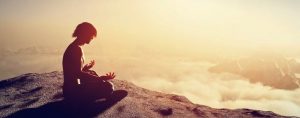 Practical hope means taking a step back and sensing what is happening externally – what do I actually know? . . . And looking internally and asking what resources do I have? Practical hope recognizes the things we do and say today have an effect. First of all on our own mind . . .our own heart . . . our own mental . . . sense of well being. The actions we do today influence the inner atmosphere of our mind and our consciousness and lay down new patterns and habits for how we’re going to feel tomorrow and the next day. This is very important. Practical hope says I can influence what’s going to happen in my own heart and mind by what I choose to say, think and do right now. So we’re placing our sense of hope on something tangible and realistic in the present moment. . . .
Practical hope means taking a step back and sensing what is happening externally – what do I actually know? . . . And looking internally and asking what resources do I have? Practical hope recognizes the things we do and say today have an effect. First of all on our own mind . . .our own heart . . . our own mental . . . sense of well being. The actions we do today influence the inner atmosphere of our mind and our consciousness and lay down new patterns and habits for how we’re going to feel tomorrow and the next day. This is very important. Practical hope says I can influence what’s going to happen in my own heart and mind by what I choose to say, think and do right now. So we’re placing our sense of hope on something tangible and realistic in the present moment. . . .
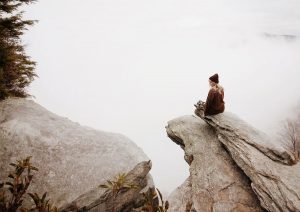 Right now we can reflect on our own experience of practical hope – how we’ve made choices that effect the people around us . . . How has your life touched other lives? We may not know the outcome of what we chose to say or do and it still matters . . . How has your life been touched by other lives? I think this definition of hope is somewhat like the Buddhist mind state of sympathetic or appreciative joy. We draw our inspiration seeing or hearing others bringing their gifts to the world. There are so many people who make our lives possible . . . essential workers, first responders, caregivers, social and environmental activists just to name a few. We can join them in placing our trust in what we can say and do today to make a difference.
Right now we can reflect on our own experience of practical hope – how we’ve made choices that effect the people around us . . . How has your life touched other lives? We may not know the outcome of what we chose to say or do and it still matters . . . How has your life been touched by other lives? I think this definition of hope is somewhat like the Buddhist mind state of sympathetic or appreciative joy. We draw our inspiration seeing or hearing others bringing their gifts to the world. There are so many people who make our lives possible . . . essential workers, first responders, caregivers, social and environmental activists just to name a few. We can join them in placing our trust in what we can say and do today to make a difference.
Our challenges are not going to be over tomorrow or even in the coming months. We will start to open up and begin opening businesses, going back to school. We are entering a new presidency and changing direction with new policies. We all still need to take care in how we interact and relate to each other. We need eachother in moving forward. Our actions spring from being grounded in the present. We can place our trust in what we say and do today and that can make a difference. Here is Alberto Rios’ beautiful poem about what we can offer in service of hope:
When Giving is All We Have
One river gives
Its journey to the next.
We give because someone gave to us.
We give because nobody gave to us.
We give because giving has changed us.
We give because giving could have changed us.
We have been better for it,
We have been wounded by it—
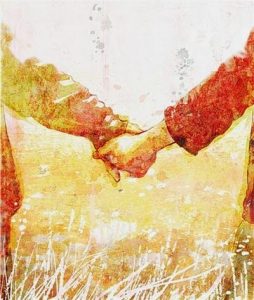 Giving has many faces: It is loud and quiet,
Giving has many faces: It is loud and quiet,
Big, though small, diamond in wood-nails.
Its story is old, the plot worn and the pages too,
But we read this book, anyway, over and again:
Giving is, first and every time, hand to hand,
Mine to yours, yours to mine.
You gave me blue and I gave you yellow.
Together we are simple green. You gave me
What you did not have, and I gave you
What I had to give—together, we made
Something greater from the difference.
